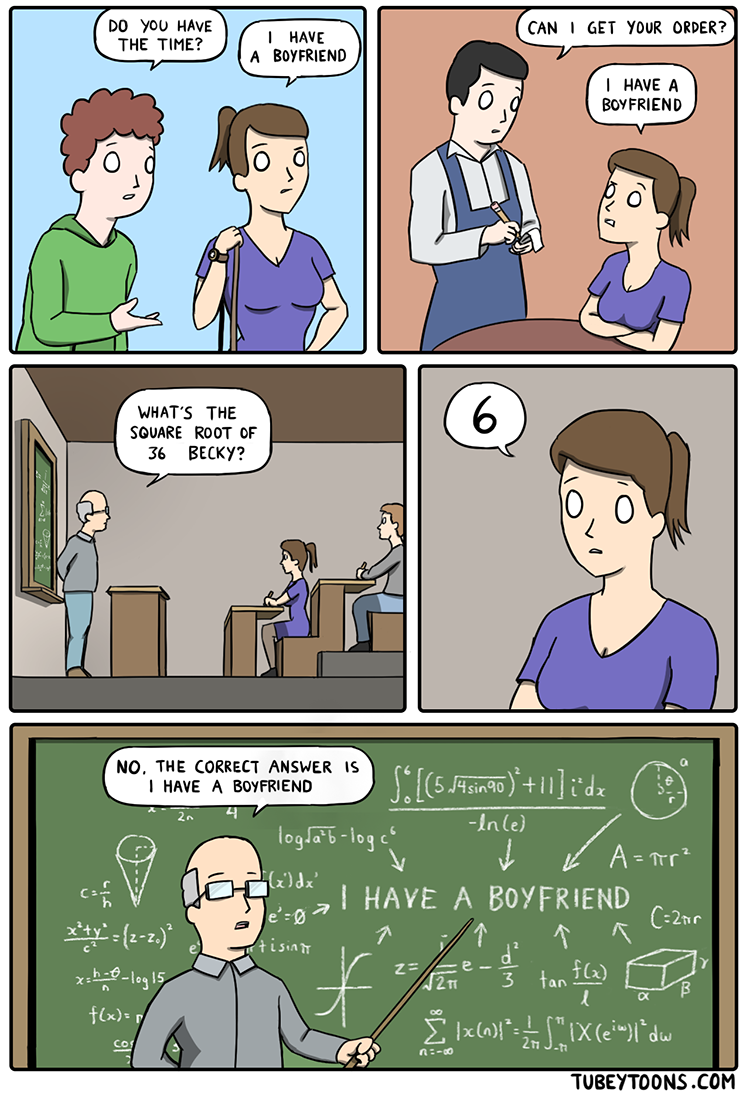this post was submitted on 08 Dec 2024
247 points (86.4% liked)
Comic Strips
12974 readers
2122 users here now
Comic Strips is a community for those who love comic stories.
The rules are simple:
- The post can be a single image, an image gallery, or a link to a specific comic hosted on another site (the author's website, for instance).
- The comic must be a complete story.
- If it is an external link, it must be to a specific story, not to the root of the site.
- You may post comics from others or your own.
- If you are posting a comic of your own, a maximum of one per week is allowed (I know, your comics are great, but this rule helps avoid spam).
- The comic can be in any language, but if it's not in English, OP must include an English translation in the post's 'body' field (note: you don't need to select a specific language when posting a comic).
- Politeness.
- Adult content is not allowed. This community aims to be fun for people of all ages.
Web of links
- !linuxmemes@lemmy.world: "I use Arch btw"
- !memes@lemmy.world: memes (you don't say!)
founded 2 years ago
MODERATORS
you are viewing a single comment's thread
view the rest of the comments
view the rest of the comments

Don't know why you are being down voted. You are correct. There is a difference between a square root and the solutions of x^2^ = n.
Yeah, square root implies absolute numbers. You need to manually multiply by -1 to get the other solution to x^2
No?
Wikipedia
Edit: I'm wrong lol, there is a difference between the square root function, which accepts two results, and the square root, or principal square root, which is a unique positive number
So close yet so far. If only you had read ONE more paragraph.
This sentence made no sense to me as it directly contradicted the previous one. But it's just a confusion on my part between the function called square root, which confusingly outputs two different numbers called "square roots", and "the" number called square root; I've edited my comment. Thanks for correcting me!
Yeah, I see how that can happen. Very confusing to have the same name for two things differentiated only by the use of a definite or indefinite article.
Look at the inverse of the square root function, f(x)=x² (https://www.desmos.com/calculator/2v5gzbhru8)
You can get the sqrt of a given y by looking at the x axis. E.g. the value of y=4 has two solutions, x=2 and x=-2. This however does not mean that the sqrt of -4 is also 2! If you look at graph you can see that there are no solutions for y less than 0.
sqrt(-1) , sqrt(-2) (i ill omit imaginary numbers here) and so on do not have a solution. There is nothing you can replace with such that x × x is < 0 because multiplying two negatives always nets a positive.
I really don't like the sqrt shorthand.
They knew.